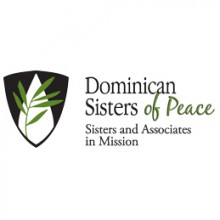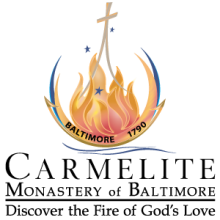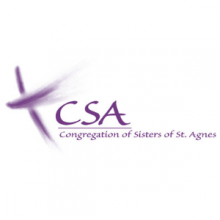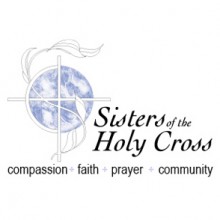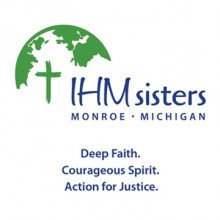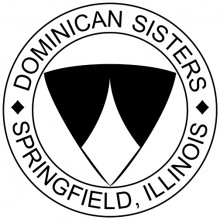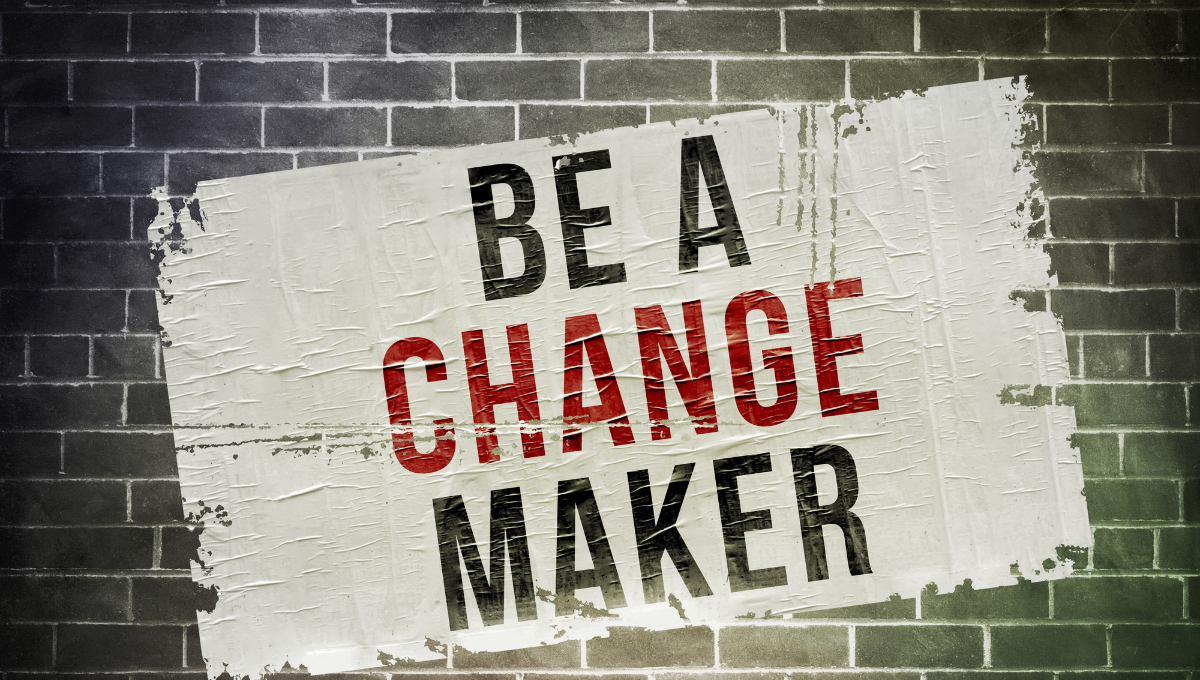
A listener wonders how much responsibility she has as a Catholic to help reduce climate change. Hear the full Ask Sister episode AS236 at aNunsLife.org. Hosts: Sister Maxine and Sister Shannon.
Let us know your thoughts about this podcast--please click here to take a short survey. Thank you!
Sister Maxine
This podcast is brought to you by one of our sponsors, Vision Vocation Network.
Our first question comes in from Laurie in Kentucky. And Laurie says, "I'm Catholic, and I've noticed lately that there's more talk in Catholic circles about the Pope's document Laudato Si. Given the scientific news about how fast the climate is changing, that's not surprising. But what I don't hear much about is whether or not our personal decisions about things related to climate change, such as how much we drive a car, or how much processed food we eat, are forms of sin." And Laurie goes on, "I'm an older Catholic, so I still believe in sin, and that's probably why I also feel guilty. As Catholics, we're supposed to follow in the footsteps of Jesus, who is willing to think and live in very different ways from his society. Should I be doing more? I would appreciate your advice. Thank you." We appreciate the question, Laurie. And certainly, climate change is a very serious issue. And I think it's understandable, given the scope of the situation, to wonder what can we do and what is our personal responsibility? Maybe it would help Laurie to start off by talking about what is an encyclical and what is Laudato Si, in particular.
Sister Shannon
I'd be happy to address that. An encyclical is a formal piece of writing that is presented by the Holy Father. It has associated with it, not the authority of infallibility, but certainly the encouragement that comes from the Holy See, as this is something thoughtful and important to Catholic people. So the Holy Fathers throughout the centuries have used encyclicals to draw our attention. You think about Humanae Vitae, or the encyclical on work, and so many of them over the over the years on social justice issues that have really called--not just Catholics--to sit up and pay attention to what is happening in our world. They focus on really important issues. And this is the first ever that a Holy Father addressed the issue of ecology.
Sister Maxine
And these things are meant for the whole entire church.
Sister Shannon
Absolutely.
Sister Maxine
So the encyclical gets circulated all around. Now Laudato Si, you mentioned it's the very first one that deals with environmental, specifically climate change, issues.
Sister Shannon
It was a very bold action on the part of Pope Francis. But I think it comes directly out of his spirituality. And, as we know, because of his choice of the name Francis, he has a deep connection to the tradition of Franciscanism, and really, he borrows the opening line or the title from St. Francis. Laudato Si has to do with giving praise to God: Praise God for all things." That's how he starts out his canticle. It's how he starts out most of his prayers. And that sort of grounds us in what's coming and what's important.
Sister Maxine
And I bet that warms your Franciscan heart.
Sister Shannon
Certainly did! You know, one of the things that most people know about Francis of Assisi was that he called everyone "brother" and "sister," not only human persons, but Brother Sun, Sister Moon. It was in him deeply that every gift of creation was a gift from God, and every gift of creation deserved respect and was a part of the whole of who we are.
Sister Maxine
That raises the issue of we're all together in this. We are not somehow apart from nature. We are integrally connected.
Sister Shannon
That's right. And that's the phrase that Francis uses throughout the document: ecological integrity, the integration of all things that have to do with creation, the bringing together of everything. He sees and recognizes and addresses and identifies the impact that our choices have on our world, generally speaking--not just our individual lives and protecting ourselves and having all of the niceties or the luxuries that we have become accustomed to. But the recognition that the choices that we make, especially as a first world country, have an effect on the poor, have an effect on the world, have an effect on the economy, have an effect on our climate. And we have witnessed it powerfully in these past couple of years, just in terms of fires and floods and heat and cold and the melting snowcaps at the North Pole and the effect it's had on the animals. There's so many ways that our choices have a ripple effect.
Sister Maxine
As you mentioned, some of those also impact the poor, who end up generally in areas that are the most affected by climate change.
Sister Shannon
The more that we have in use, in our experience, sometimes the less others have as a result. One of the things that Laurie asks about is, how do we look at climate change? How do we recognize what's going on? How do we look at our contribution to this? And so I was sharing with Sister Maxine earlier that I took a class on Franciscanism and ecology a few years back at St. Bonaventure University, and one of the activities of the class was to do our own carbon footprint.
Sister Maxine
Could you do that online?
Sister Shannon
Yeah, we used an online resource. In fact, if you just type that in, there are surveys or questionnaires that you answer that sort of identify. And what does that do? It talks about how much energy and how much you would need in order to survive. If everybody lived the way I live, could one planet sustain us? Would we need two whole planets to sustain us, or more? So we took this survey. And it was quite interesting and a little bit embarrassing to me to discover, because I drive a car, because I fly on airplanes, because I use digital equipment--lots of things! Because I have running water and electricity in my home, my carbon footprint indicated that I would need another planet and a half, if everybody lived like me, to sustain us for life. Another brother that was in the class with us came from Central America. And he talked about his grandmother who lived in, I believe, San Salvador. And he took the survey as if he was her. She doesn't have electricity in her home, she doesn't drive a car, she doesn't have running water in her home, she's never been on an airplane. And when he completed the survey as if he were his grandmother, she was the only one in the class that could have been sustained by a single planet.
Sister Maxine
When you start thinking of it that way, it is stunning. And to realize that the impact that we can each have in our culture here in the United States. This is commonplace stuff: having transportation, whether we drive our own car, other forms of transportation that rely on fossil fuels, our lifestyle. Really, when Pope Francis calls for interior conversion, in this culture and in many cultures, many places, it is going to be a major project to do that. And I think that's where Laurie is coming from, too. It's almost like, "Where do I begin? What parts of this do I take on?"
Sister Shannon
And she connects it with whether or not doing or not doing something is sinful. We certainly have a responsibility to be concerned about others than ourselves, to be concerned about our planet. We do have responsibility to care for it, and for those who will want to use it after us--our children and our children's children. In terms of sin, I think it has to do with motivation, and why you make a choice to do something or make a choice not to do something. Because there's always intention involved in committing sin. In this case, I think, the more aware we are of things that we can do, then the more responsible, therefore, when we choose to ignore them. Then we're edging on making a choice that could be sinful.
Sister Maxine
Those choices might include things like learning more, keeping up on reading and learning about climate change. But I'd also suggest for Laurie, when you're talking about awareness and mindfulness, to go out and be in nature for a while and let yourself fall more deeply in love with it. Because sometimes love will be the most powerful catalyst for our capacity to change.
Sister Shannon
To really recognize the power of creation and the beauty that surrounds us, and to allow it to come into our souls. I think sometimes we're so busy in life that we miss that, and we don't have opportunities to be surrounded. It's why going off to a retreat and beautiful park has such a significance in people's lives. It changes them, slows them down. It helps them to, as you would say, proverbially smell the roses. But there is something to that, isn't there? Taking it in and taking time.
Sister Maxine
We educate ourselves, we try to be mindful. And we may, in fact, know a lot about climate change. And I think Laurie's asking the question, "Should I be driving my car so much?" So once we recognize that, then what? How do we go about this in a way that we can still manage to function in our culture? You know, in many places, if there's no transportation system, and you're supposed to go to your job--what do you do?
Sister Shannon
Laurie identifies herself as an older Catholic. So I don't know your age, Laurie. But years ago, there was a big movement, probably in the 70s, to stop littering. It just moved across the country. It wasn't just making it a law that you could be fined if you were caught littering, but it was, "This is our planet. This is our home." I think those same kinds of things are happening today. So we see commercials about buy the Britta pitcher instead of buying plastic bottles of water, because of the plastic that ends up in the oceans. Use tap water and put ice in it. We do have those choices every day. On our university campus, we made the decision, the last time we put up a building, to sink geothermal wells to heat and cool the building, not with fossil fuels but with geothermal wells. We put in water stations throughout the campus so that people could refill their water bottle, instead of buying a bottle of water in a plastic bottle and throwing the plastic into the waste. To stop running the water while we're brushing our teeth. All kinds of little ways that we can begin to have an influence on building up the planet.
Sister Maxine
That's a great way to think about it, too, because if we think too much about the scope of the problem, and we're like, "Well, just I'm just one person; it's not going to matter." But if all of us do something--
Sister Shannon
Yeah, we start making better choices.
Sister Maxine
And that's an act of faith.
Sister Shannon
It is.
Sister Maxine
Like you say, when everybody starts doing something, it's going to help.
Sister Shannon
People have begun to compost--good for the soil.
Sister Maxine
Catholic Sisters, as many other Catholics, have begun things like this long before the encyclical came out, recognizing this is part of our church tradition that is unfolded. So for us as IHMs, we have prairie restoration, instead of out there mowing the lawns. We have geothermal. So this is part of a tradition that, Laurie, has been going on for a while and she said, she hasn't been hearing too much about it, so she probably hasn't heard about the Action Platform. Now it's the fifth anniversary of Laudato Si--there's more information about that online. It does call us as Catholics, and as other people of goodwill, to get involved.
Sister Shannon
There's a marvelous organization called Catholic Climate Covenant that is available online. And they keep people apprised of what's going on, ways that they can be involved. Letters they can write, people they can contact. And then it also continues to unfold the power of the document. As a first step, Laurie, maybe get a copy of the encyclical. You can download it from the Vatican website, or from the United States Catholic Bishops Conference website.
Sister Maxine
And we'll be sure to include the link to that in the Episode Notes for the podcast to make that easy for you to find. The other thing is, Laurie says she's not hearing too much of that. So if you feel you're not hearing enough about that in your parish community, get involved and talk with your parish priest or other folks in the parish and raise up the issue of "Hey, maybe we should take a look at the Action Platform and get more involved."
Sister Shannon
I think there's a lot that we can do as individuals, as well as what we might do as a parish, to make a significant difference. Even the way we think about our planet and its sustainability.
Sister Maxine
And Laurie, don't be discouraged by just being one person. Do what you can. And you didn't mention what you are or are not doing, but because you're concerned about this, it sounds like you are really looking at that in a much deeper way.
Sister Shannon
You need to think about it. That's a good thing. Carpooling, walking to work, there are so many choices--taking the bus instead of driving a car. All those little choices that we can make.
Sister Maxine
There really are. I think there's some people come at this with the mindset of, "Oh, this is gonna make my life less enjoyable, less convenient, if I give up X, Y and Z." But it also may hold the keys to freedom, in a sense. And to always be open to that transformation--as Pope Francis talks about, that interior conversion. There's a lot of grace that comes with some of that.
Sister Shannon
It's really true. It deeply touches us.
Sister Maxine
To hear full episodes of A Nun's Life podcasts, visit the podcast page at anunslife.org/podcasts.
This transcript has been lightly edited for readability.






